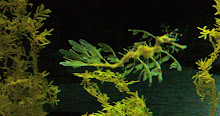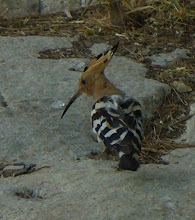
Barred Antshrike, Thamnophilus doliatus by Brazilian photographer Dario Sanches. This picture has a creative commons attribution licence - you can find details of that [here].
Welcome to Weirdbeautiful and Happy New Year!
First beautiful item of the day today is the wonderful bird above- the Barred Antshrike, which is a central and South American species, found from Mexico, right down to Northern Argentina. The bird shown above is a male: the females are redder in colour, like this-

This picture is also by Mr Dario Sanches. You can find details of the image licence (also Creative commons 2.0) [here].
The barred antshrike is an insectivorous creature, eating ants and other insects and arachnids, plus occasional lizards and/or berries- you can find out more about it [here]
Sticking with the "beautiful" theme, second link of the day today is this seal photograph c/o stumbleupon.com-
http://www.stumbleupon.com/su/1o6F6m/www.clarin.com/diario/2006/10/19/um/fotos/morsa3.jpg
Finally, today's third picture link I have for you is... not exactly beautiful, but certainly pretty amazing- baby crocodiles from babyanimalz.com-
http://www.stumbleupon.com/su/1XA6MK/www.babyanimalz.com/
There has been no shortage of scientific stories in the media, either, lately.
The International Herald Tribune published this story on the International Marine Census earlier today-
http://www.nytimes.com/2011/01/04/science/04scibks.html?_r=1&ref=science
Essentially, it talks about the publication last year of a census of known marine life- including some of the odder beings on this planet. Several of the pictures have been published before, but if you haven't seen them, they are worth a look.
Meanwhile, this article, by Eleanor Rosenthal (also in the International Herald Tribune)looks at the growth of renewable energy in Africa- notably the use of solar panels in Kenya; undoubtedly a very positive application of science.









Solar panels will help you manage your bills. It's like you are having the electricity for free. It's eco-friendly too.
ReplyDelete